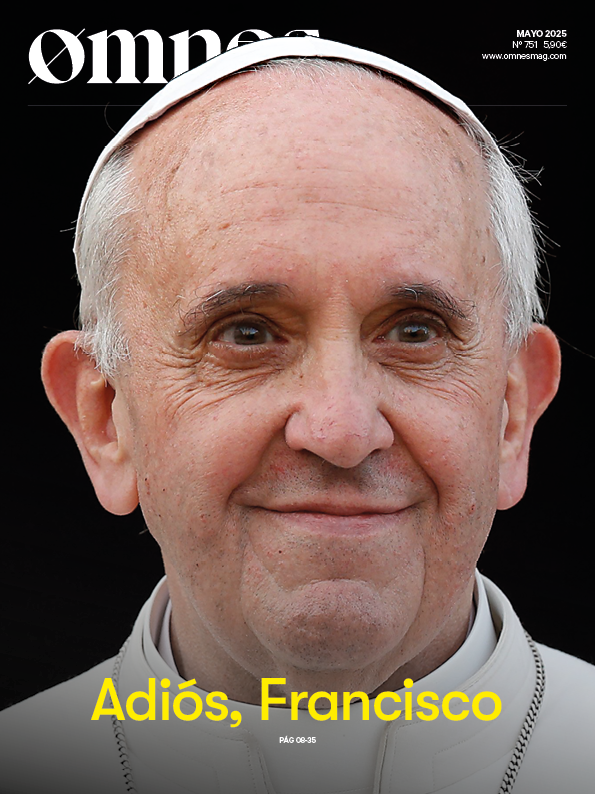Jesus - like the Church today - was trying to announce to the world a good news that is accessible and understandable to all, as demonstrated by the crowds he drew, but curiously, among the characters of the Passion, there are many who do not seem to understand that Jesus did not seek religious or political power, that he did not want to lead a revolution or attract the masses to become strong, that his only interest was to serve, not to be served.
Two thousand years later, little has changed. As in that Jerusalem crowded with pilgrims for the Easter celebrations, the media expectation that has brought with it the changeover in the See of Peter has given voice to a multitude of characters and characters whose perspective of the ecclesial institution is completely closed to the message it carries with it.
Among the characters there are those who limit themselves to look at it with curiosity, as Herod did with Jesus; to criticize it because its approaches denounce the lie in which they live, like Caiaphas, or to despise it to avoid getting involved because they have more important things to think about, like Pilate with himself.
Among the little characters, there are those who use the commotion to take advantage of it. There are those who, faced with the transcendence of the character, jump on the bandwagon and, although deep down they despise him, try to take advantage, like the "evil" thief; those who, afraid to show their faces, hide, like the disciples; or those who, manipulating the message of the Church, make it seem that it says what it does not say, like the false witnesses in the trial before the Sanhedrin. And next to these, the multitude of Jewish guards, Roman soldiers and various rabble who take the opportunity to insult, spit, scourge, mock, or accuse the followers of the Nazarene.
A separate place deserves those who, having eaten and drunk with the Lord, being more or less prominent members of the community, interpret the moment of succession only in terms of human interest and are already placing themselves in the best position for their own benefit. Some have even denounced the "religious infantileism" of those who believe in the action of the Lord. Holy Spirit during the process of electing a new Pope, implying that the conclave is nothing more than a game of bargains. They are like the one who thought that, after his kiss, Jesus was going to reveal himself with an army of angels and put him in a privileged place. Poor guy, he had not understood anything!
In front of these characters and characters, there were other more or less great figures who understood that the Kingdom that Jesus had come to establish was "something else". Starting with Mary, John and the holy women who accompanied him at the foot of the cross; continuing with Joseph of Arimathea, Nicodemus, the daughters of Jerusalem or the Cyrenean and reaching the Roman centurion who recognized the mystery, seeing that rag in the eyes of the world and proclaimed: "Truly this man was the Son of God". They saw what the others did not.
The mystery of the action of the Holy Spirit in the election of the Pope, like the mystery of the Church, is well defined by the Second Vatican Council, which says that the Church is "like a sacrament. Just as the sacraments (baptism, the Eucharist, confession...) visibly manifest the action of Christ's invisible grace, the Church, as the universal sacrament of salvation, makes Christ present wherever she goes, despite the difficulty of seeing him incarnated in weak and sinful human beings.
With Francis already resting in Santa Maria Maggiore, a new "Passion" begins, a public exposition of the visible Church until the election of the new Pope. Many will be the speculations, the unfounded or interested judgments... With which character or personage will we identify ourselves? Will we be able to understand that the Kingdom is not of this world? Will we know how to look at the visible Church as a sacrament of Christ just as Christ was the sacrament of the Father and many did not know how to see it? It is not so difficult to understand for those who, kneeling before a simple piece of bread, and ignoring those who accuse them of having childish beliefs, are capable of exclaiming: "Truly, this is the Son of God! Happy Easter!
Journalist. Graduate in Communication Sciences and Bachelor in Religious Sciences. He works in the Diocesan Delegation of Media in Malaga. His numerous "threads" on Twitter about faith and daily life have a great popularity.









